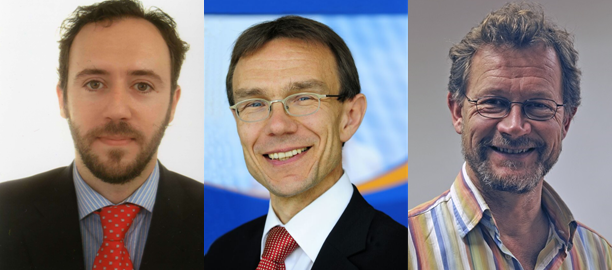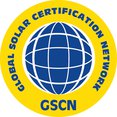
Between 8 and 11 March, Berlin will be the venue of choice for standard and certification experts from all corners of the globe. Then, the city will host three international meetings to discuss standard and certification issues at European and global level: First, there is the meeting of the Solar Keymark Network (SKN), which will be held on 8 and 9 March and will be headed by Jaime Fernández González-Granda (left); second, there is the one of the Global Solar Certification Network (http://www.solarthermalworld.org/content/iea-shc-mutual-recognition-test-and-inspection-reports-saves-industry-costs ) on 10 March led by Harald Drück (middle). The third event that will take place in the same week is the kick-off meeting of the newly created Task 57, Solar Standards and Certification, which will be held on 10 and 11 March and will be headed by Jan Erik Nielsen (right).

SKN: New chairman after ten years
The Solar Keymark Network consists of around 50 stakeholders from testing and research institutes, from the industry and from certification bodies across Europe. They meet twice a year for two days to work on new standards and to discuss implementation issues with Solar Keymark in different countries. Jaime Fernández González-Granda, Product Officer at the Spanish certification and standardisation body, AENOR, was elected the new chair of the Solar Keymark Network in October 2015. He followed in the footsteps of Harald Drück, Head of the Research and Testing Centre for Thermal Solar Systems, TZS, at the ITW, University of Stuttgart, Germany, who had been at the helm since the network had been founded 10 years ago. Key topics of the Solar Keymark Network meeting will be: New collector data sheet, improved complaints procedures, approval of new projects under the Solar Certification Fund (7th SCF Call) (link to http://www.solarthermalworld.org/content/europe-first-call-solar-certification-fund-proposals), improvements of scheme rules, general updates of standards and interaction of the Solar Keymark with legal requirements and other projects such as GSCN, LabelPack A+ and the energy label.
Companies or institutions interested in the SKN meeting can send an email to: JAFERNANDEZ@aenor.es

GSCN: Mutual recognition of test and inspection reports worldwide
The period on Thursday, 10 March, between 9 am and 3 pm will be reserved for the Global Solar Certification Network (GSCN). This network is comprised of certification bodies, test labs and industry companies from Asia, Europe and North America and is expected to facilitate global collector certification and mutual recognition of test and inspection reports across several regional and national certification schemes. Harald Drück is the head of the network, which was established as part of the previous Task 43, Solar Rating and Certification – Global Collector Certification. “2016 is the key year for the Global Solar Certification Network. We will intensify our activities and bring the network into operation this year,” Drück states his objective. Major topics of the GSCN meeting in Berlin: discussion of working rules and the issue of financing (budget, fees, funding), the use of the GSCN logo and the different membership statuses.
Companies or institutions interested in the GSCN meeting can get in contact with either Chairman Harald Drück (drueck@itw.uni-stuttgart.de) or GSCN Manager Jan Erik Nielsen (manager@gscn.solar).

Task 57: Better terms for global trade of high-quality solar thermal products
On the afternoon of Thursday, 10 March, and Friday, 11 March, it will be time for the kick-off meeting of Task 57, Solar Standards and Certification. The task under the auspices of the IEA’s Solar Heating and Cooling Programme (SHC) was approved by the IEA SHC Executive Committee in December as a three-year research project led by Jan Erik Nielsen from Danish consultancy SolarKey International. The distribution of responsibility shows that it is an absolutely global topic: For the first time, a subtask will be chaired by a Chinese expert. He Tao, Professor at the China Academy of Building Research (CABR), will be responsible for Improvements of test procedures – support and input to the International Standardisation Committee ISO TC 180. Another novelty is the fact that a representative of a sponsor will head a subtask. Ashraf Kraidy, Senior Expert at the Regional Center for Renewable Energy and Energy Efficiency, will be responsible for Promotion and capacity building with respect to ISO standards and state-of-the-art certification schemes. “The start of the Solar Heating Arab Mark and Certification Initiative in 2010/2011 was inspired by the Solar Keymark Network, and we are now in a good position to have the first pre-certified products ready in one of the focus countries, either in Lebanon, Egypt, Tunisia or Jordan this year,” Kraidy explained in an interview with solarthermalworld.org (https://www.youtube.com/watch?v=iA60GVbFCm8).
Companies or institutions interested in Task 57 can write an email to jen@solarkey.dk
More information: